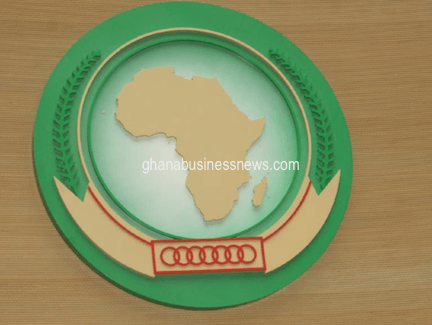The AU, fighting corruption and investigative journalism in Africa
 It is common knowledge that Africa is not poor. The continent holds the largest share of the world’s precious metals, and while barely half of its arable land has been cultivated, it is the leading producer of cocoa in the world. Indeed, some Gulf countries are known to have purchased land in Africa to grow food to meet their future needs.
It is common knowledge that Africa is not poor. The continent holds the largest share of the world’s precious metals, and while barely half of its arable land has been cultivated, it is the leading producer of cocoa in the world. Indeed, some Gulf countries are known to have purchased land in Africa to grow food to meet their future needs.
But some of the reasons why the continent’s nearly 1.3 billion citizens are having to struggle to find jobs, find food and live decent lives can be traced to capital flight. The continent’s resources and wealth are being spirited away through illicit financial flows and corruption. It is therefore commendable that the African Union (AU) has made the fight against corruption its mandate for the year 2018.
The AU launched the anti-corruption fight during its 30th Assembly of Heads of State and Government held from January 22 – 29, 2018 at its headquarters in Addis Ababa, Ethiopia.
The launch of the African Anti-Corruption Year, the AU says follows the declaration made at the 29th Assembly of the Heads of State and Government in January 2017.
The Summit theme was: “Winning the Fight against Corruption: A Sustainable Path to Africa’s Transformation”.
Africa loses $148b to corruption every year
African countries altogether lose some $148 billion every year to corruption.
Vera Songwe, the Executive Secretary of the Economic Commission for Africa (ECA) reportedly said “$148 billion drained out of the continent through various corrupt activities and acts represent about 25 per cent of Africa’s average GDP.”
Meanwhile, the continent is also widely believed to be losing some $50 to $60 billion every year to illicit financial flows.
Africa is the rich continent that doesn’t appear to have control over its wealth – Africa’s wealth and resources have been circled over and siphoned into other continents around the world and this has been going on for centuries.
The anti-corruption fight must be real
Africa is not the only continent smitten and wounded by corruption – there is corruption on other continents too, but the extent to which corruption is impacting Africa is overwhelming and therefore the fight against corruption must be real and not cosmetic.
During the Global Investigative Journalism Conference held in Johannesburg in November 2017, the first time the global event was held on the continent, Noble Prize winning economist, Prof. Joseph Stiglitz made a point about the pervasiveness of corruption when he pointed out that while multinational companies from the West come to Africa and corrupt its politicians and businesses, reports about corruption often do not name these Western perpetrators, thereby creating the impression that Africa is the only corrupt continent.
The AU’s Anti-Corruption Convention is clear about the dangers of corruption in Africa. It is concerned about the negative effects of corruption and impunity on the political, economic, social and cultural stability of African states and its devastating effects on the economic and social development of the African peoples. It further acknowledges that corruption undermines accountability and transparency in the management of public affairs as well as socio-economic development of the continent.
The AU Anti-Corruption Convention among others as a matter of priority calls for a common penal policy to protect the society against corruption.
It is early in the day yet, but the fight against corruption is an urgent one, considering the harm it is continuing to do to the continent, and therefore, four months into the year, it would be fair to ask to see some of the concrete efforts being made to curb the debilitating menace. Africa can’t pay lip-service to corruption like it has done in past to other equally important issues that have continued to hold this great continent back – nothing more than action now is what is required.
Africa’s investigative journalists
The continent’s investigative journalists have been on the frontlines of fighting corruption for decades now, since journalism took a foothold in Africa. Investigative journalists and whistleblowers have been in the firing line in this honourable fight against corruption. But they haven’t received the needed support from the continent itself. They have been at the receiving end of unfair attacks, and imprisonment and sometimes they have paid the ultimate price for daring to expose corruption.
Journalists like Norbert Zongo, Dele Giwa, John Kugblenu and others have been killed in the line of duty while they fought corruption and repressive regimes whose cronies benefitted from corruption.
It is therefore imperative that the AU considers liaising and working with the continent’s investigative journalists in this noble quest to fulfill this anti-corruption agenda.
The AU must as a matter of urgency set-up a system to directly support and work with investigative journalists – the records cannot be disputed, that African journalists have been fighting corruption long enough, with some results to show and they make suitable allies in fulfilling the AU’s agenda.
By Emmanuel K. Dogbevi
Email: [email protected]
Copyright ©2018 by Creative Imaginations Publicity
All rights reserved. This article or any portion thereof may not be reproduced or used in any manner whatsoever without the express written permission of the publisher except for the use of brief quotations in reviews.
